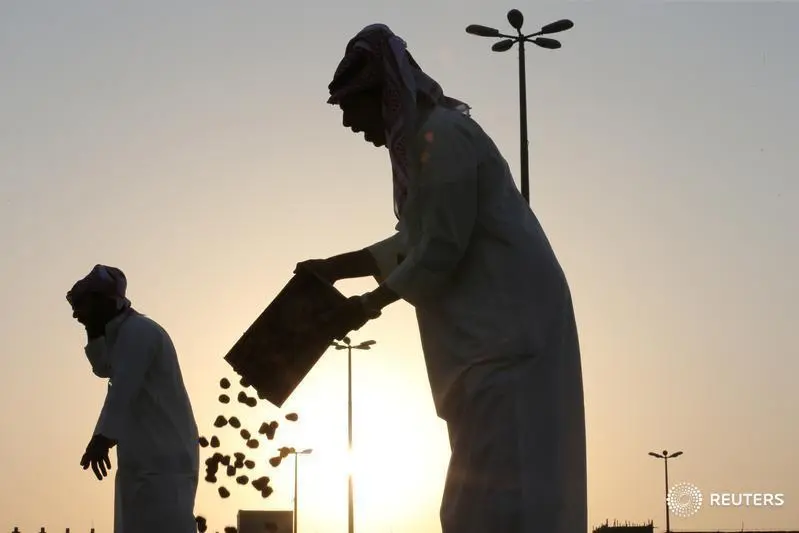PHOTO
While rising oil prices have led to better-than-expected overall gross domestic product (GDP) growth in Saudi Arabia and the United Arab Emirates, Emirates NBD, Dubai’s largest bank, said in its latest monthly report that the non-oil sectors in both countries have “underperformed” this year.
With Brent oil prices rising by around a fifth since the start of 2018, Emirates NBD in its September Monthly Insights report said it had upgraded Saudi Arabia’s headline GDP growth to 2 percent for 2018, up from a previous forecast of 1.5 percent and compared to a decline of 0.7 percent last year.
Despite this, it has also downgraded its forecast for the non-oil sector to 1.6 percent, compared to a previous forecast of 2.3 percent. (Read the full report here).
“Non-oil sector growth has not benefited as much as expected from increased government spending on the back of higher oil prices,” the report claimed, pointing out that while total expenditure is up 25 percent year-on-year during the first half of 2018, a third of this was on defence contracts, which the report says has little impact on the domestic, non-oil, private sector of the kingdom’s economy.
In addition, it added that the introduction of new fees for expatriate workers has led to an exodus of foreign labour, further softening private sector demand.
That said, the report said it expects the impact of government spending to eventually trickle down, with the manufacturing, transport and logistics sectors to start seeing an impact during the last quarter of 2018.
In the UAE, the main strain for the non-oil sector has been an absence of jobs growth, the report said. Again, analysts at Emirates NBD put this down to the fact that while the government has announced expenditure plans these have not been in areas that are likely to benefit the non-oil, private sector.
While the Abu Dhabi government announced a 50 billion UAE dirham ($13.61 billion) stimulus package earlier this summer, the Emirates NBD report said a large proportion of this was going into areas such as the Ministry of Tolerance, the Sports Authority, Media Council and the Space program, which it said would have "a limited multiplier effect”.
As a result, the report estimated that growth in the UAE is likely to remain at 2.2 percent this year (up from 0.8 percent in 2017), but Emirates NBD was upbeat for next year, forecasting 3.6 percent in 2019.
Here are some of the other highlights in the September report:
• Trade wars: With Dubai positioning itself as a global transport hub, the report said the continued trade war between China and the United States will have a negative impact. “Chinese activity indicators will also become increasingly important as its economy is highly correlated to global trade flows, especially with the China market being an important export destination for many of other EM [emerging market] economies,” the report said, adding that the latest figures from China show the economy could see a reduction in GDP growth of around 0.5 percent as a result of President Donald Trump’s tariff plan.
• Debt: While oil prices are on the way up, any sudden downturn will pose a risk for oil exporting Gulf countries. “The cushion of reserves is already much smaller than it was in 2015-2016, again raising questions about the sustainability of the currency pegs [to the US dollar],” the report said.
• Bonds: Emirates NBD observed that GCC bonds held their ground amid the volatility suffered by emerging markets. “In the recent month, Oman and Bahrain sovereign bonds have been some of the best performers,” it pointed out. However, it also observed that funding of Expo 2020-related mega projects would “appear to have stretched financials of the Emirate of Dubai”.
• Equities: While the MSCI World index gained 2.9 percent in the last three months, on the back of strong U.S. and Japanese results, emerging market and MENA equities have underperformed, with the MSCI EM index losing 6 percent over the same period. On top of this, the decision to include Saudi Arabia in the MSCI EM index has had limited impact, with the Tadawul down 7.6 percent over the same period. “Arabian equities also brings into focus the declining correlation between oil prices and equity prices at a time when oil prices are actually rising,” the report concluded.
• Oil: The standoff between China and the U.S. will impact global oil demand in 2019, with the report predicting that “a swing into surplus in Q1 will be temporary and overall the market will be roughly balanced next year”. Emirates NBD predicts that Brent futures will hit an average of $73 per barrel in 2019, but will rise above $80 in the short-term, as the market reacts to the Iranian shortfall.
Further reading:
• Saudi non-oil private sector growth slows in July - PMI
• Saudi private sector growth in August is fastest this year - PMI
• Emirates NBD UAE PMI
• Potential worker shortage may put brakes on Saudi construction - analyst
• 234,000 expats in Saudi Arabia lose jobs in Q1
• Bonds and Sukuk: Structuring fixed income instruments in GCC
• Equities expected to continue outperforming bonds
• UAE Saudi combine GDP to hit $11 trillion
• Special Coverage: Sino-U.S. Trade War
(Writing by Shane McGinley; Editing by Michael Fahy)
(shane.mcginley@thomsonreuters.com)
Our Standards: The Thomson Reuters Trust Principles
Disclaimer: This article is provided for informational purposes only. The content does not provide tax, legal or investment advice or opinion regarding the suitability, value or profitability of any particular security, portfolio or investment strategy. Read our full disclaimer policy here.
© ZAWYA 2018





















